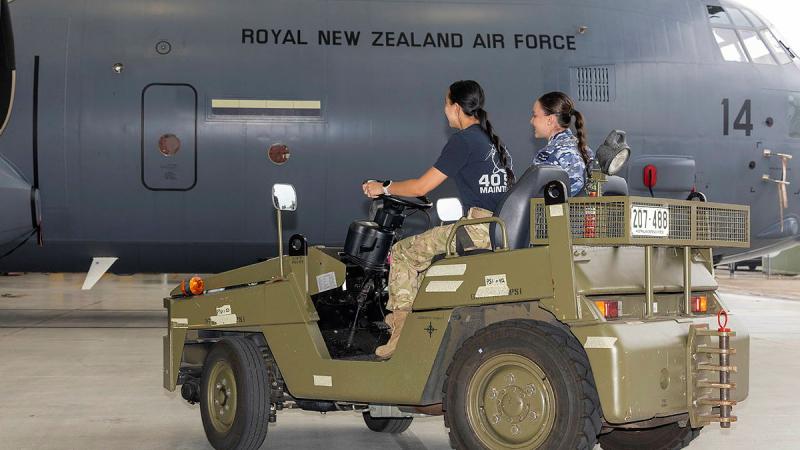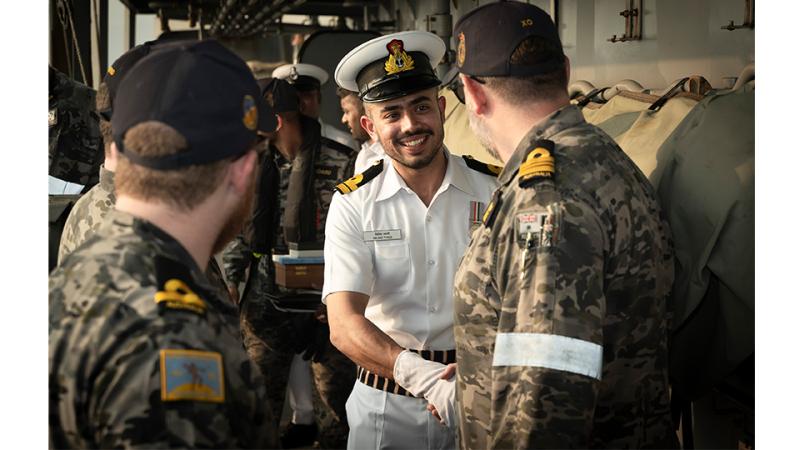21 May 2025
From a naval base in Tokyo, a team of four Australians are working with international partners to enforce United Nations Security Council (UNSC) sanctions against North Korea.
The Enforcement Coordination Cell (ECC) at Yokosuka in Japan coordinates international maritime surveillance and patrols in the East China Sea, Yellow Sea and Sea of Japan.
Staffing at the ECC includes personnel from Australia, Republic of Korea, Japan, New Zealand, Canada, France, Germany, Italy, Netherlands, the United Kingdom and the United States.
Specifically, the ECC is tasked with monitoring, preventing and reporting on illicit ship-to-ship transfers conducted by North Korea, and other activities that violate international sanctions.
This includes the prohibited import or export of items used in nuclear, ballistic missiles and other weapons of mass destruction-related programs.
The UNSC sanctions also cap North Korea’s import of refined petroleum and crude oil, and its exports of coal.
Lieutenant Commander Andrew Frugtniet, one of the four ADF officers embedded within the ECC, said the role provided a unique opportunity to work closely with international partners in a fast-paced, operational environment.
“Being here at the ECC gives me a front-row seat to the kind of international cooperation that keeps the Indo-Pacific secure,” Lieutenant Commander Frugtniet said.
“We’re working together every day to track and disrupt illicit maritime activity. My team within the J2 department includes people from the United States, New Zealand and the United Kingdom. It’s a great example of how our countries stand together on security issues that affect the entire region.”
As well as contributing to the ECC’s staff, many nations also deploy ships and aircraft to enforce these sanctions.
'It’s rewarding to see the impact our work has in keeping maritime trade routes safe and ensuring the rules-based order is upheld.'
Australia supports this through Operation Argos, either through deployments by Royal Australian Air Force P-8A Poseidons, or Royal Australian Navy Hobart-class destroyers or Anzac-class frigates.
Prior to each Argos deployment, the detachment commander or ship’s commanding officer will engage with ECC staff for operational and intelligence briefings and to better understand the enforcement coordination and role of the ECC.
For ADF members, the role within the ECC is more than just intelligence sharing, it is about direct coordination with partners in real-time maritime security operations.
“Every day, we’re exchanging information and refining our processes to make sure we’re one step ahead of those trying to breach internationally recognised sanctions,” Lieutenant Commander Frugtniet said.
“It’s rewarding to see the impact our work has in keeping maritime trade routes safe and ensuring the rules-based order is upheld.”
The ECC operates under the command of the United States Indo-Pacific Command (USINDOPACOM) and is executed by the United States Navy’s 7th Fleet.
This allows ADF members of the ECC to assist with coordination of multilateral maritime exercises alongside the 7th Fleet and other regional partners.
“We’re not just working together in an office, we’re taking these lessons and applying them in real-world operations,” Lieutenant Commander Frugtniet said.
“The training, exercises and daily coordination at ECC directly contribute to how our navies operate together at sea.”
Australia’s involvement with the ECC and participation in joint maritime operations reflects its dedication to collaborative security efforts in the Indo-Pacific, the enforcement of international laws and the promotion of regional stability.


